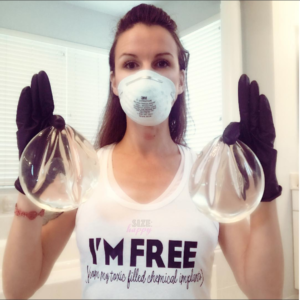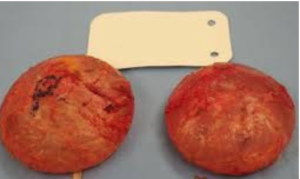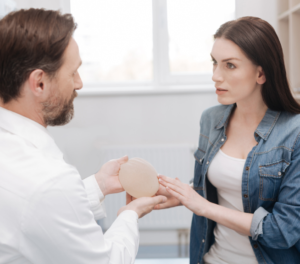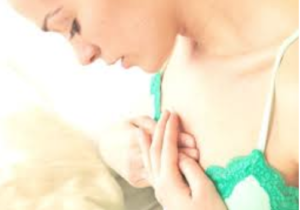 I don’t know about you, but something I need (especially when I’m doing something like having surgery) is peace of mind.
I don’t know about you, but something I need (especially when I’m doing something like having surgery) is peace of mind.
I need to know how things work, what the process is, what I can expect afterwards, and so on. You too?!
This is why I put this together for you, because I know I’m not alone.
Before you read on I need to mention some really important things.
- Be sure to always take the advice of your surgeon over anything you hear or see online.
- Your surgeon should provide you with Post-Op Care Instructions – be sure to follow his/her instructions.
- This article is not intended to go against what your surgeon tells you to do.
- Your surgeon should address all these with you. Each surgeon has his/her own protocol and ways they like to handle things. Definitely run all of these question by your surgeon and take their advice.
- This article is intended to give you a general idea of what to expect post-op.
Below you’ll find the most common questions women ask about post explant surgery care.
When can I lift light things, like my baby? Typically one to four weeks
You’ll want to wait a week, at the very least. I was told to not lift anything heavy for four weeks. I could hold plates and cups, but I couldn’t grab anything from overhead or push anything up above my head. For example, grabbing something down from a cupboard or lifting something up to put in the cupboard was a big no-no for me.
How long do I need a care giver? Typically two – 14 days
This is going to depend on how much pain you’re in, what kind of prescription drugs you’re on and how they’re affecting you, and how your house is laid out (lots of stairs, large sq. ft., etc.) . You’ll need someone there to help you wash your hair for the first time, for sure. I had to have someone help me up off the couch every time – or it took me a couple minutes because I didn’t want to use my arms. It was nice to be able to lay around, have someone cook for me and have them get up every time I needed a drink, snack or my pills – which seemed like every hour or two.
How long do you think I’ll need to take off work? Typically one to two weeks
This all depends on your pain level. If you work somewhere where you have to lift things, I’d say take off a solid two weeks if you can. I’ve seen some women go back in a week and some in two to three weeks – depending on if they got a lift or not. If you get paid time off, take two weeks off. If you’re not getting paid, just play it by ear. Every BODY is different. I think you’ll be able to tell by day five post-op what to do. When you do go back to work, take it slow and ease back into it. NO heavy lifting.
When can I start driving again? Typically in three days to one week
I started driving by myself I think after two weeks. You’ll want to take turns very slow – trust me. Be extra careful and cautious… especially of speed bumps, dips and sewer caps in the road. This is just me, but I wouldn’t go too far for a few weeks either or while you have your drains in.
When is it safe to put my arms above my head? Typically in one to two weeks
I had to wait a full week. Even so, I lifted them up slow and was very careful. The only times you’ll really be lifting your arms up overhead is to change your top and shampoo/comb your hair.
When can I wash my own hair? Typically in three days to a week
I’ve heard surgeons say “in three days” and others say “in a week”.
When can I sleep on my side? Typically in four to six weeks
I’m a side sleeper, but for the first month I literally laid on my couch on my back. At my four week check up my surgeon Dr Dev said it was safe to lay on my side.
When can I wear a normal bra or sports bra? Typically in two weeks to six months
After two weeks I was able to put on a sports bra. The surgical bra I had was so uncomfortable for me because it kept digging into my cleavage area (which is nothing but skin and bone) and riding up, bothering my incisions. My surgeon said I could switch to a comfortable sports bra as long as the elastic band didn’t compress my incisions and nothing pushed down on my breasts themselves. I’ve heard some surgeons say “two weeks” and others “six months”. You definitely do not want to wear an underwire bra – ever.
How long do the drains stay in? Typically in one to three weeks
This all depends on how much fluid is coming out. I had to wait until my drains were at or below 20cc for 24 hours before I could get them removed. I was able to get them out on day seven. I’ve seen some women get them out in three days and some in three weeks. Again, it all depends on your body. Things like scar tissue, tissue trauma or forceful dissection can prolong drain use. Some surgeons don’t even do drains, so there’s that too.
When can I exercise and lift weights? Typically in four to six weeks
I got cleared to exercise with light weights at four weeks out. This will depend on how well you’re recovering and if you got a lift.
When is it safe to take a bath and swim? Typically in six to eight weeks
I got cleared to swim and take a bath at five weeks out.
When can I expose my scars to the sun? Typically in six to eight weeks
I’m almost eight weeks out and I don’t want to expose them to the sun just yet because I want my scars (which are still pink) to heal more.
How long do the sutures take to dissolve completely? Typically in eight to 12 weeks
What is the best thing to put on my incisions to help minimize my scars?
I use coconut oil – that’s it. After four weeks I started adding in some frankincense essential oil and lavender essential oil to it to help with healing and skin health. I’ve also heard of women using CBD oil and vitamin E.
When do I start detoxing? After a month
Detoxing is such a hot topic amongst women who just explanted. I personally would wait four weeks and then start introducing things like vitamins and herbs.
The months leading up to your explant I would focus more on:
- eating good (reducing inflammatory foods)
- reducing stress
- exercising (if you’re not too tired)
- getting rest
- boosting up your immune system
Every BODY is different, heals differently and recovers differently. Don’t be discouraged if you’re not cleared as fast as you would’ve liked to have been.
Be patient with your body – it’s been through a lot 😌
Do you still have a question? Let me know either by commenting below or asking me on social media!
Breast Implant Illness Rejuvenation and Education By Christina Facebook Group
Not on Facebook? JOIN ME ON INSTAGRAM!
here’s to newfound health, rejuvenations and massive self-love,
Christina Dennis

 Regardless if you have silicone or saline breast implants, it’s actually the shell that is full of toxic chemicals – not just what’s inside.
Regardless if you have silicone or saline breast implants, it’s actually the shell that is full of toxic chemicals – not just what’s inside. En Bloc: all together or all at the same time.
En Bloc: all together or all at the same time.
 Before I get into the laundry list of possible Symptoms and Side Effects associated with BOTH silicone and saline breast implants, I want to mention a few important things.
Before I get into the laundry list of possible Symptoms and Side Effects associated with BOTH silicone and saline breast implants, I want to mention a few important things. I receive a lot of questions each week in regards to the best ways to detox pre and post explant.
I receive a lot of questions each week in regards to the best ways to detox pre and post explant. If you’re anything like me (and you haven’t explanted yet) you probably read everyones story after they explanted, fascinated by how good they feel and look immediately after surgery.
If you’re anything like me (and you haven’t explanted yet) you probably read everyones story after they explanted, fascinated by how good they feel and look immediately after surgery. Today I’m exactly five weeks post explant. It’s September 6, 2018.
Today I’m exactly five weeks post explant. It’s September 6, 2018. Today marks four weeks since I removed my silicone breast implants. I have so much that I want to update you on, but before I do…
Today marks four weeks since I removed my silicone breast implants. I have so much that I want to update you on, but before I do…